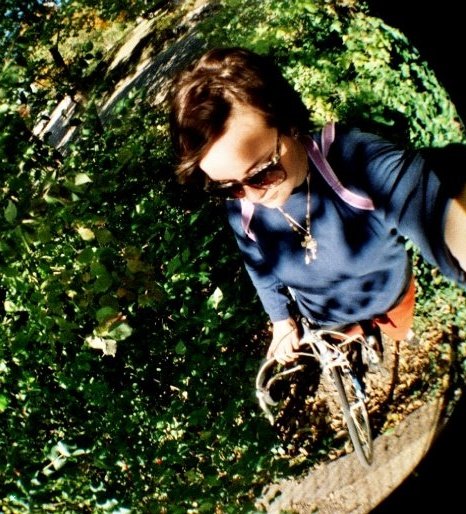a) China blocked most blog sites
b) Internet was not provided in any hotel we stayed in
c) Internet cafes were very few and far between
d) The one place we were in for a large chunk of time that had internet didn't want foreigners going there
e) The other place we were in for a large amount of time that had internet had police following us around (which made me feel uncomfortable)
f) And I know the government was carefully reading all emails leaving western China (due to the incidents in Xinjiang) because some of my friends' email accounts were shut down. I didn't want to risk writing something slightly offensive or questionable and get in trouble -
As one Chinese driver yelled as he almost ran over my friends with his taxi, "Welcome to China!"
So after we sadly left the beautiful city of Xining, we hit the road for more remote areas out west. First we took a five hour drive to see Gangcha county (the place we were originally suppose to conduct surveys). It ended up taking a long time so we only stayed for lunch. This area was amazingly beautiful and untouched by the western world. Everywhere we walked wide eyes stared at us in amazement and children would point and ask, "what is that?" As rural as it is, everyone there seemed to have a cell phone and I know this because they were all out pointed in our faces to take a picture of the da bizi or "big noses" as they like to call foreigners. Eventually we had people following us around to every store we went to, it was slightly entertaining and slightly eerie.
After lunch in Gangcha we drove three hours to see Lake Qinghai. We saw it all right but we didn't get to go close to it because it cost 120 RMB per person to pass through a gate (now in America, it's no big deal because that is about 15ish dollars, but in China this is a rip off and one must not give into that kind of treatment of people who want to see something of the natural world). Instead, we were dropped off two miles away from the lake in the middle of the desert. Not just the desert but a sight of current desertification. It's one thing reading about it in a book or in an article about finding sand from China in California but actually seeing it is... nuts, beautiful, insane, scary, and breathtaking at the same time. We spent a few hours climbing sand dunes, pointing to skulls and plants trying to make it. Then we were able to see the line of where desert meets grassland. It was unforgettable. I'm glad we spent time in the desert instead of at a lake.
Plants meet desert

Notice in the right corner where the desert meets the sky you can see Lake Qinghai

After a long day at the desert we stayed a night at a hotel and left the next day to visit a Tu village. The Tu are a minority in China whose roots can be traced back to the Mongolians. It was a very interesting experience. They welcomed our group with dances and songs and invited us to lunch. Before entering their living quarters everyone had to drink a bowl of Tibetan barley baijiu, I don't know how else to explain baijiu other than it tastes like complete shit and my dad can attest to that. I had luckily gotten away with never tasting it the past two trips to China but this time there was really no way to get around it. So I drank it, gagged a little, but was glad it was over with. To refuse would've been a huge insult. Once we were seated we all ate bread, mutton, noodles and then were informed that we had to drink another bowl of baijiu to honor the oldest person in the room. After that was over with they told us they wanted to have a singing competition with us, the Tu people against the foreigners and the Chinese students and professors we were with. The losers would have to drink three bowls of baijiu each, so who really wanted to lose? The rules were to take turns singing a few lines until one team can't think of a song to sing. It was a fierce competition, so fierce that people were jumping up to sing and trying to go so fast that the other group would stall and not know what to sing. Turns out we all were too good so instead of declaring a loser everyone had to drink. Let me tell you all it was 11 am and we were about four bowl of baiju into the morning. We all left a bit tipsy and glad to get away from that heinous beverage.
We then boarded the bus to go to Xunhua county to actually start our research and I will write about that later, maybe this weekend. For now, here are a couple pictures of the canola and rapeseed fields we saw on the way to the Tu village and one of the biggest Tibetan monasteries in China we visited outside of Xining.




More later!


